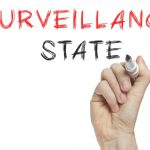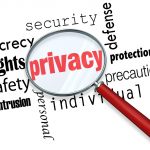Facebook opens up to Tor users with new secure .onion address

For those who are concerned about their privacy post-Snowden, there are various ways to boost online privacy such as using the anonymizing Tor browser. Browsing the internet anonymously is something that scares the authorities -- there were reports just a couple of months ago that Comcast was threatening to cut off customers who chose to use Tor -- but now Facebook has opened up to the idea.
The social network -- often criticized for its own privacy policies -- has lifted its bans on using Tor, and has created a secure URL (https://facebookcorewwwi.onion/). This can be used to visit Facebook using any Tor-enabled browser and adds a few extra layers of protection for those looking to stay secure. While the idea of anonymity on Facebook may seem oxymoronic, there is a degree of logic.
Yahoo resisted NSA Prism requests -- US government threatened $250,000 daily fines

It's transparency time once again! After Edward Snowden opened the can of NSA surveillance worms, internet users' collected attention has been focused on online privacy. We still don’t know the full extent of the monitoring that took place, but more information continues to leak out. All of the big names -- Google, Apple, Microsoft, Facebook, and the rest -- have slowly trickled out little snippets about government data requests. A new blog post from Yahoo's general counsel Ron Bell sheds further light on the resistance the company put up against requests for data.
Just like Google and Microsoft, Yahoo is keen to let it be known that it tried to stick up for the privacy rights of its customers. A new cache of documents -- stretching to War And Peace baiting 1,500 pages -- from seven years ago shows just how much of a fight Yahoo tried to put on its users' behalves. Way back in 2007, the US government started to request information about users from a number of online companies. Yahoo was one of the companies who -- initially, at least -- refused to comply, and tried to fight the government in court.
Paranoid much? Americans are now self-censoring online after Snowden's NSA revelations

The effects of Edward Snowden's revelations about the activities of the NSA continue to be felt. Internet users are now familiar with the idea that what they do online is possibly (probably?) being monitored in one way or another. Some users have taken to the likes of Tor in a bid to increase security and anonymity, but there has also been a more interesting side-effect. Figures released by "nonpartisan fact tank" the Pew Research Center suggests that a "spiral of silence" has developed as Americans start to censor themselves online.
The research group conducted a survey of more than 1,800 people in the middle of last year and found that while most people (86 percent) were quite happy to talk about state surveillance in person, less than half (41 percent) were willing to do so on Twitter (itself involved in censorship). This self-censorship is an interesting repercussion of the NSA's activities, and it seems that social network users have been hardest hit:
Rebel NSA and GCHQ agents are actually helping make Tor more secure

For anyone looking to stay anonymous online, Tor seems like an obvious option. At the same time, it could lull users into a false sense of security -- after all, this is a network that was, at least in the past, funded by the military and US government -- and conspiracy theories abound that Tor is nothing more than a honey trap to catch the kind of people who have a need for anonymity because of their nefarious activities. The network has evolved over the years and now agencies such as the NSA in the US and GCHQ in the UK are actively seeking out vulnerabilities so they can crack the network. But the relationships are actually far more complex than that.
According to Andrew Lewman, chief of operations at Tor, the same agencies that are trying to break Tor are also posting tips anonymously about the vulnerabilities that have been found -- giving a chance for them to be patched. Talking to the BBC Lewman said:
Edward Snowden claims NSA caused the 2012 Syrian internet outage

Edward Snowden has claimed that the US accidentally took most of Syria off the Internet while attempting to bug the country's online traffic.
Speaking to National Security Agency journalist James Bamford for Wired, the whistleblower claimed that a US intelligence officer told him that the NSA was responsible for Syria's disconnect from the web in late 2012, and not the Assad regime.
Edward Snowden can stay in Russia for at least three more years

The enfant terrible of the tech world, and the thorn in the side of the NSA, Edward Snowden has been granted permission to stay in Russia for a further three years. The former NSA analyst turned whistle-blower sought exile in the country a year ago and on August 1st he was granted an extension. The three-year residency permit was approved a week ago, but has only just been made public by Snowden's lawyer. Anatoly Kucherena explained that Snowden himself would hold a press conference as soon as possible, reported Russia Today.
The US has tried to force Russia to hand over Snowden so he can face charges in his home country, but for the time being, he will be able to stay where he is. If he feels inclined, the permits allows for him to travel abroad for up to three months, and he is free to travel wherever he wants within Russia. Although he has not expressed an interest in doing so, Snowden would be eligible to apply for permanent residence in Russia in five years' time.
Tech startups working to protect your privacy

Addressing the Hackers on Planet Earth (HOPE) conference over the weekend of 18 July, Edward Snowden entreated hackers, engineers and activists to fight surveillance by building a new generation of privacy tools for everyone to use. In fact, privacy startups are already hard at work building tools to help web users protect their privacy in areas such as analytics, encryption and search.
However, there is still much work to do to put these tools into the hands of the ordinary web user.
Wilson's Weekend Whine: Snowden's call for online encryption is sad but necessary

It was quite a coup for HOPE (Hackers On Planet Earth). At the 2014 hacker event, Hope X, in New York City this weekend, Edward Snowden delivered a speech to those in attendance, advocating the use of encryption online. The former NSA analyst was not at the event himself -- he's still holed up in Moscow -- but he called on those present to help to protect privacy online. Speaking via a video link Snowden said: "You in this room, right now have both the means and the capability to improve the future by encoding our rights into programs and protocols by which we rely every day".
It was a great piece of work keeping the presentation a secret. There were, of course, fears that Snowden's appearance would somehow be thwarted: "We had to keep this bombshell quiet til the last minute since some of the most powerful people in the world would prefer that it never take place." There were certainly risks involved, but it was a risk worth taking. "[Snowden's] revelations of the massive NSA surveillance programs confirmed the suspicions of many and shocked those who haven’t been paying attention".
Snowden: Facebook is allowing the government to see your messages

In a lengthy interview with the Guardian, NSA whistle blower Edward Snowden spoke with editor Alan Rusbridger about his extraordinary rise to infamy. Currently in exile in Russia, he talked about how he disseminated documents about the activities of the NSA to numerous countries: "Once you start splitting them over jurisdictions and things like that it becomes much more difficult to subvert their intentions. Nobody could stop it". He remains defiant. He may be an outlaw but "it’s been vindicating to see the reaction from lawmakers, judges, public bodies around the world, civil liberties activists who have said it’s true that we have a right to at least know the broad outlines of what our government’s doing in our name and what it’s doing against us".
He explains how during his time working as an NSA analyst, he learned about previous surveillance programs run under George W Bush. Programs that were deemed unconstitutional and, having been closed, forced the US government to assume new executive powers that were then used "against the citizenry of its own country". For Snowden the power of the state is worrying:
Recent Headlines
Most Commented Stories
BetaNews, your source for breaking tech news, reviews, and in-depth reporting since 1998.
Regional iGaming Content
© 1998-2025 BetaNews, Inc. All Rights Reserved. About Us - Privacy Policy - Cookie Policy - Sitemap.